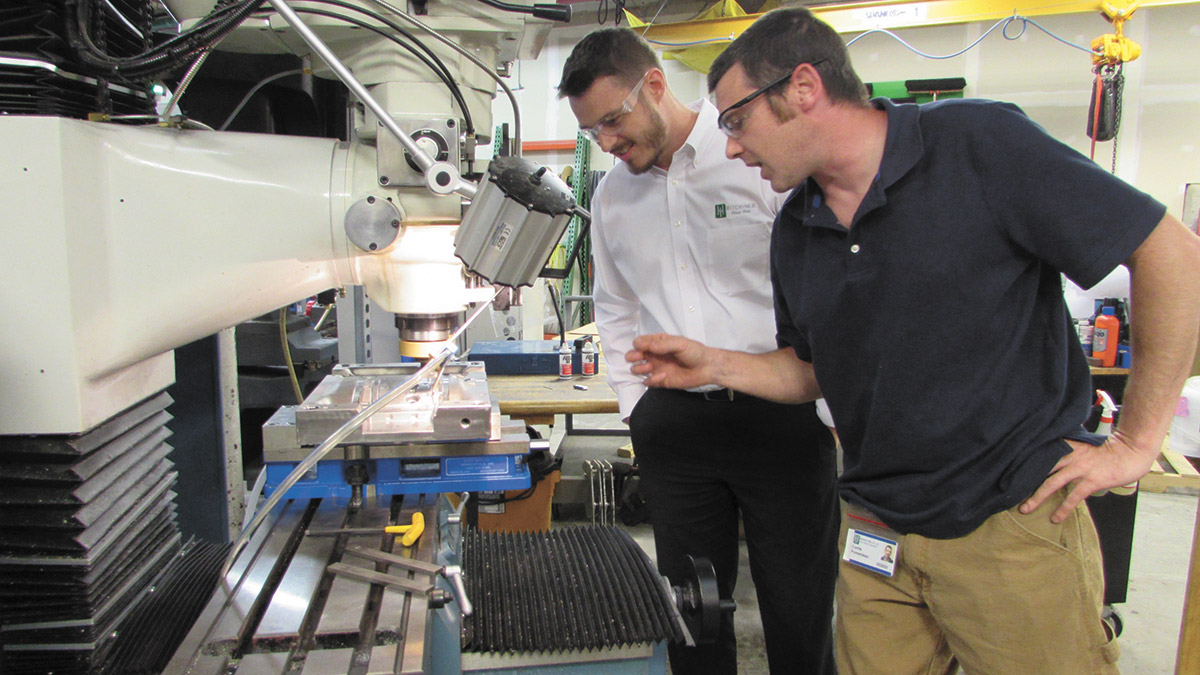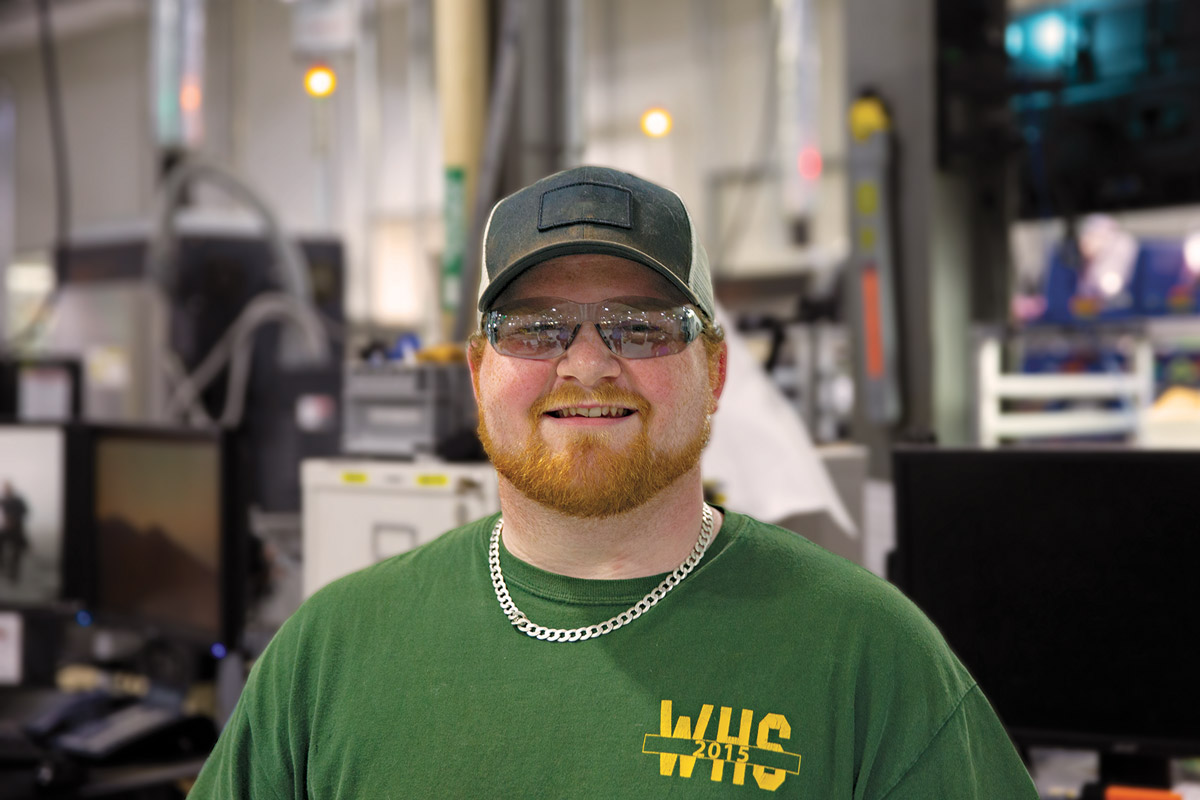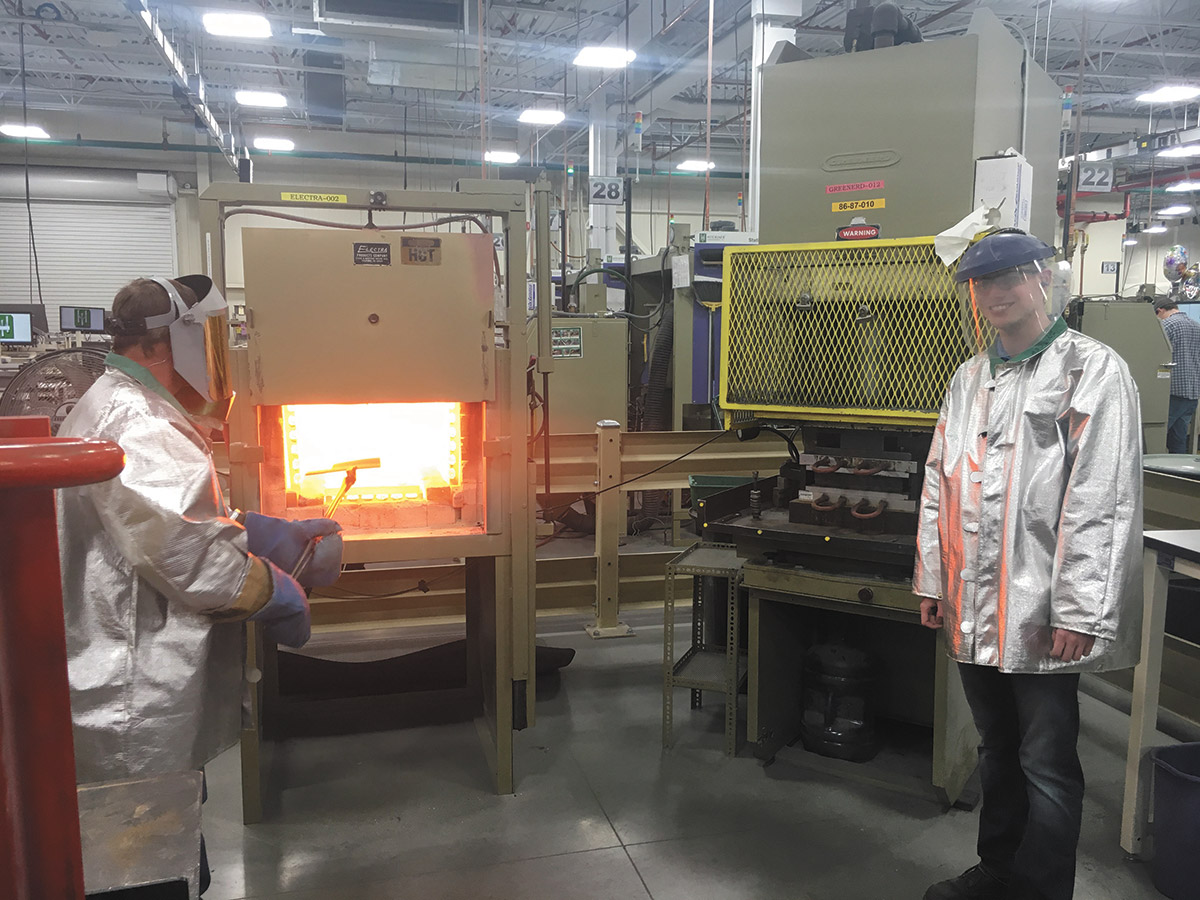
New Hampshire wants more of its workers with technical degrees and certificates, and is creating shortcuts to get them
Unemployment numbers have been low in recent times – good news for job hunters – but of course not everyone is qualified for every job. In New Hampshire, a significant gap exists between what employers need, and what job seekers know how to do.
Due at least in part to retiring Baby Boomers and technological advances, the shortage of qualified workers has reached crisis proportions at certain companies. When jobs go unfilled, it puts a dent in productivity and harms the state’s overall economy. And obviously, job seekers who can’t find work because they’re underqualified can run into financial trouble.

Zenagui Brahim, president, New Hampshire Manufacturing Extension Partnership
“The lack of a skilled workforce in New Hampshire has become a very big topic, a big issue that we need to deal with, [and] that we should have dealt with 30 years ago,” said Zenagui Brahim, president of the New Hampshire Manufacturing Extension Partnership (NH MEP).
Fortunately, the state is brimming with workforce development opportunities to help employees gain the skills they need to fill the available jobs.

TJ Hubbard (left) participates in a learning and training program at Milford manufacturing company Hitchiner, Inc.
Efforts to build the future pipeline of manufacturing employees include scholarships, mentoring, internships, and chances for high school students to visit manufacturers. NH MEP, the New Hampshire Charitable Foundation, The New Hampshire Coalition for Business and Education, community colleges, high schools, and other organizations work to provide programs that help connect employers with potential employees, and offer opportunities for people to learn the skills they need to succeed in the job market.
One such initiative, called 65 x 25, is based on research indicating 65% of New Hampshire’s adult workforce will need to be highly skilled or credentialed by 2025 to meet the state’s job needs, said Sara Colson, Director of Workforce Accelerator 2025 and Membership Development at the Business and Industry Association.
“Right now, we’re at about 55%,” Colson said.
Quick, high-tech training
“There’s technology embedded in everything now,” Colson said. “If you go into a manufacturing facility now and you think about what manufacturing looked like for our grandparents, it’s so different now. It’s so high-tech.”
Today’s workers “really need to have additional training that is not being covered in high school,” she said, although not necessarily a college degree.
For example, some workers qualify for jobs after completing a brief program such as BAE Systems’s 10-week “Microelectronics Boot Camp,” held at Nashua Community College, which comes with a guaranteed job interview upon completion of the course.
Elsewhere, Josh Spaulding, 22, found his path to employment at Hypertherm, Inc., directly after high school by attending the company’s Summer Institute and other programming.

Josh Spaulding, 22
Position: Process support technician
Company: Hypertherm, Plainfield
Salary range for his position: $50,000-$60,000, according to the Bureau of Labor Statistics
Career aspiration: “I’ll probably retire here. They have a great retirement plan. Long-term goal – I want to be an engineer.”
Cold ride: “I love to snowmobile.”
During those early experiences at Hypertherm, “I really thought it was a good job,” said Spaulding, who is now a technician at the company. “It’s a great place to work, a great place to start a career. I enjoy the environment that Hypertherm created, the family and close-type atmosphere, and the teamwork.
“I learn new things every single day . . . [and] the advancement is crazy,” he said. “You can go all the way up the food chain if you put your nose down and work. And they’re more than willing to help you out to get there. They want you to get there. They want everyone to succeed.”

Calista Chappell interned in a variety of departments for Hitchiner, including the engineering department.
Starting in high school
As a 16-year-old summer intern, Calista Chappell has gotten a taste of the real-life manufacturing world at an even younger age than Spaulding did, by taking advantage of a years-long partnership between Hitchiner Manufacturing and Milford High School, where she is a senior this fall.
With ambitions of working in engineering, Chappell appreciates the opportunities the company has given her.
“I thought I’d be in one section, working with the same group of people, but they moved me around from product engineering to quality engineering, process engineering, and all those different sections, which was really nice because I got to work with a lot of people and I learned a lot more than I could have at school,” Chappell said.
Her experiences at Hitchiner have been invaluable, she says, “because you can see what you’re more interested in and what you’re not so interested in.” She plans to continue to work as an intern part-time at Hitchiner during the school year.
Hitchiner’s continued partnership with Milford High School benefits the company and opens career pathways for students, some of whom are offered jobs at the company.
The experiential learning enables students to make a better-informed decision about whether to take on the tuition obligation of college, and which career to pursue, said Timothy Sullivan, Hitchiner’s vice president of corporate affairs and services.
Calista Chappell, 16
Position: Intern
Company: Hitchiner Manufacturing Co. Inc., Milford
School: Milford High School
Salary: $12 an hour, “which was much better than I expected” as a 16-year-old, she said.
Career aspiration: Engineering
Playing all the right notes: “I’ve played piano since first grade, I picked up the flute in fifth grade, then I started playing the piccolo my sophomore year … I’m a student leader for the marching band, which is very exciting.”

Tom Beaulieu did training this summer at Milford manufacturing company Hitchiner, Inc.
“I thought I’d be in one section, working with the same group of people, but they moved me around from product engineering to quality engineering, process engineering, and all those different sections, which was really nice because I got to work with a lot of people and I learned a lot more than I could have at school,”
— Calista Chappell, Hitchiner Manufacturing Summer Intern
Hitchiner also offers summer engineering internships for college students and has other upcoming career pathway initiatives in the works.
Many other individual employers are also doing their part to reach out to prospective employees. MSI Mechanical Systems, for example, offers co-ops to high school students and has done much to help workers gain experience and skills. Brian Hooper, vice president of operations at MSI, said a number of MSI’s former co-op students continue to work for him today in their 30s, while others have opened their own companies.

The Hitchiner training program includes a lot of hands-on experience to expose young people to a career in manufacturing.
All of these programs are vital to worker success, employers, and the state.
“Young people are our future, the biggest contributors to the economy,” Brahim said. “More workers are not going to fall from the sky. And there’s [currently] not enough.” ◾


